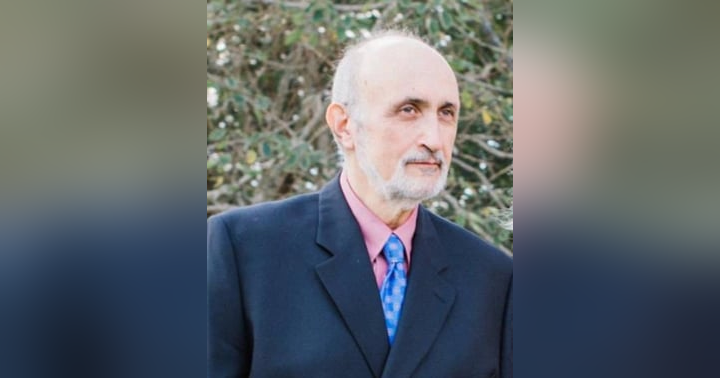
The teen years can be turbulent, and for many families, the challenges extend beyond typical adolescent angst. Mental health struggles and addiction are increasingly prevalent, leaving parents feeling lost and overwhelmed. In this blog post, we'll explore these pressing issues and highlight a valuable resource: Austin Davis's book, "My Kid, My Crisis." This book serves as a plain-language guide for families navigating these difficult waters, blending real-life stories with actionable tools. It's a lifeline for parents seeking clarity and a path forward. This post expands on a recent episode of the podcast, Faith, Family, And 90 Days: Austin Davis On Saving Teens, where Austin joined me to delve into these critical topics. We discussed the post-COVID surge in mental health issues, the importance of family systems, and practical strategies for helping teens. This blog post aims to provide further insights and resources for parents grappling with these challenges.
Navigating the Teen Mental Health Crisis
The statistics paint a stark picture: teen mental health is in crisis. Rates of anxiety, depression, and substance use have skyrocketed, particularly in the wake of the COVID-19 pandemic. Parents often feel ill-equipped to handle these complex issues, unsure of where to turn or how to help their children. This section will explore the scope of the problem and set the stage for understanding the resources available.
Meet Austin Davis: Counselor and Author
Austin Davis, LPC-S, is the founder and CEO of Clear Fork Academy, a leading Christ-centered residential treatment program for teens in Texas. With years of experience in the field, Austin has dedicated his career to helping adolescents and their families overcome mental health and addiction challenges. His book, "My Kid, My Crisis," is a culmination of this experience, offering practical advice and real-world insights for parents. He's not just a clinician; he's a compassionate guide who understands the complexities of the teen mental health landscape. Austin's approach is rooted in both clinical expertise and a deep understanding of family dynamics. He recognizes that healing requires a holistic approach that addresses the needs of the individual and the family unit.
The Post-COVID Surge in Teen Mental Health Challenges
The COVID-19 pandemic exacerbated existing mental health challenges among teens. Lockdowns, social isolation, and academic disruptions contributed to increased rates of anxiety, depression, and substance use. The loss of routines, extracurricular activities, and social connections had a profound impact on adolescent well-being. This section will examine the specific ways the pandemic has affected teen mental health and the ongoing consequences for families. Remote learning presented a unique set of challenges for many students, leading to feelings of isolation and disengagement. The constant exposure to negative news and uncertainty further fueled anxiety and stress. As a result, many teens are struggling to readjust to normalcy and require ongoing support to address the emotional toll of the pandemic.
Clear Fork Academy: A Christ-Centered, Clinically Based Approach
Clear Fork Academy offers a unique blend of Christ-centered values and clinically rigorous treatment. This approach recognizes the importance of both spiritual and psychological healing in the recovery process. The academy provides a structured and supportive environment where teens can address their challenges, develop coping skills, and build a foundation for long-term well-being. The integration of faith-based principles provides a framework for ethical decision-making, character development, and a sense of purpose. Simultaneously, the clinical component ensures that treatment is evidence-based and tailored to meet the individual needs of each student.
Why 90-Day Programs and Family Systems Work?
Austin advocates for 90-day residential programs and family systems therapy as effective interventions for teen mental health and addiction. The extended duration of 90-day programs allows for in-depth assessment, comprehensive treatment, and the development of lasting coping skills. Family systems therapy recognizes that the family unit plays a crucial role in the adolescent's well-being and focuses on improving communication, resolving conflicts, and establishing healthy boundaries. Addressing the family dynamic is essential for creating a supportive environment that promotes long-term recovery. Without family involvement, the progress made during treatment may be undermined by unhealthy patterns and dynamics at home.
Getting Teens Back on Track Academically
Academic struggles often accompany mental health and addiction challenges. Clear Fork Academy incorporates a charter-school curriculum, enabling teens to stay on track with their education while receiving treatment. This approach minimizes academic disruption and helps students maintain a sense of normalcy and accomplishment. The academic program is designed to meet the individual needs of each student, providing personalized instruction and support to help them succeed. By addressing both academic and emotional needs, Clear Fork Academy empowers teens to regain control of their lives and pursue their educational goals.
Early Warning Signs Parents Miss: People, Places, and Things
Recognizing early warning signs is crucial for early intervention. Austin emphasizes the importance of paying attention to changes in a teen's "people, places, and things." This includes shifts in their friend groups, changes in their preferred hangouts, and new or unusual belongings. These changes can be indicators of underlying struggles and should prompt further investigation. Parents should also be aware of changes in their teen's behavior, mood, and academic performance. Any significant deviations from their normal patterns should be addressed with concern and open communication. Building a strong and trusting relationship with your teen is essential for fostering an environment where they feel comfortable sharing their challenges.
The Impact of Social Media and Dopamine Loops
Social media plays a significant role in the lives of today's teens, and its impact on mental health cannot be ignored. The constant exposure to curated content, the pressure to maintain a perfect online persona, and the addictive nature of social media can contribute to anxiety, depression, and low self-esteem. The dopamine loops created by social media can be particularly harmful, leading to addictive behaviors and a diminished capacity to experience pleasure from real-life activities. Parents need to be aware of the potential negative effects of social media and encourage healthy usage habits. Setting boundaries, promoting offline activities, and fostering open communication about online experiences are essential strategies for mitigating the risks.
Everyday Rituals That Heal: Tech-Free Dinners
Simple, everyday rituals can have a profound impact on family connection and well-being. Austin advocates for tech-free family dinners as a way to foster communication, connection, and emotional support. These shared meals provide an opportunity for families to connect, share their experiences, and build stronger relationships. Creating a consistent and predictable routine can also provide a sense of stability and security for teens. In addition to family dinners, other healing rituals include regular exercise, spending time in nature, and engaging in creative activities.
What to Do Before the ER: Seeking Help Early
When a teen is struggling with mental health issues, it's important to seek help early. Austin encourages parents to explore options beyond the emergency room, such as therapy, counseling, and support groups. Early intervention can prevent a crisis from escalating and improve the chances of a successful recovery. Consulting with a mental health professional can help parents develop a comprehensive treatment plan tailored to their child's specific needs. It's also important for parents to prioritize their own mental health and seek support for themselves. Navigating a teen's mental health challenges can be emotionally draining, and parents need to ensure they have the resources and support they need to cope effectively.
"My Kid, My Crisis": A Plain-Language Guide for Parents
"My Kid, My Crisis" offers a clear and accessible guide for parents navigating the complexities of teen mental health and addiction. The book provides practical advice, real-world examples, and actionable strategies that parents can implement right away. It covers a wide range of topics, from recognizing early warning signs to finding the right treatment options. The book's plain-language approach makes complex information easy to understand and apply. Austin's compassionate and empathetic tone provides reassurance and hope for parents who may be feeling overwhelmed and alone.
Stories of Transformation: Faith, Service, and Recovery
Recovery is possible, and Austin shares inspiring stories of transformation in his book. These stories highlight the role of faith, service, and a supportive community in the healing process. Seeing examples of teens who have overcome similar challenges can provide hope and motivation for both teens and their families. Faith-based principles can provide a framework for ethical decision-making, character development, and a sense of purpose. Engaging in service activities can foster empathy, compassion, and a sense of connection to others. Building a strong and supportive community can provide ongoing encouragement and accountability throughout the recovery journey.
Resources: Clear Fork Academy and "My Kid, My Crisis"
This section provides information about Clear Fork Academy and how to access Austin's book, "My Kid, My Crisis." These resources offer valuable support and guidance for families seeking help for their teens. Clear Fork Academy provides a comprehensive range of services, including residential treatment, outpatient therapy, and family intensives. "My Kid, My Crisis" is available for purchase online and at bookstores. Both resources are designed to empower parents to take proactive steps in addressing their teen's mental health challenges.
You Are Not Alone
Navigating teen mental health challenges can be isolating, but it's important to remember that you are not alone. Many families are facing similar struggles, and there are resources available to help. Seeking support from therapists, counselors, support groups, and other parents can provide valuable encouragement and guidance. Connecting with others who understand what you're going through can reduce feelings of isolation and provide a sense of community. Remember to prioritize your own mental health and seek support for yourself. Taking care of your own well-being will enable you to better support your teen.
In conclusion, "My Kid, My Crisis" is a valuable resource for parents grappling with the challenges of teen mental health and addiction. Austin Davis's expertise and compassionate approach offer practical guidance and hope for families seeking a path forward. As we discussed in the related podcast episode, early intervention, family involvement, and a holistic approach are key to successful recovery. Remember, you are not alone, and help is available. Don't hesitate to reach out for support and take proactive steps to address your teen's needs.










